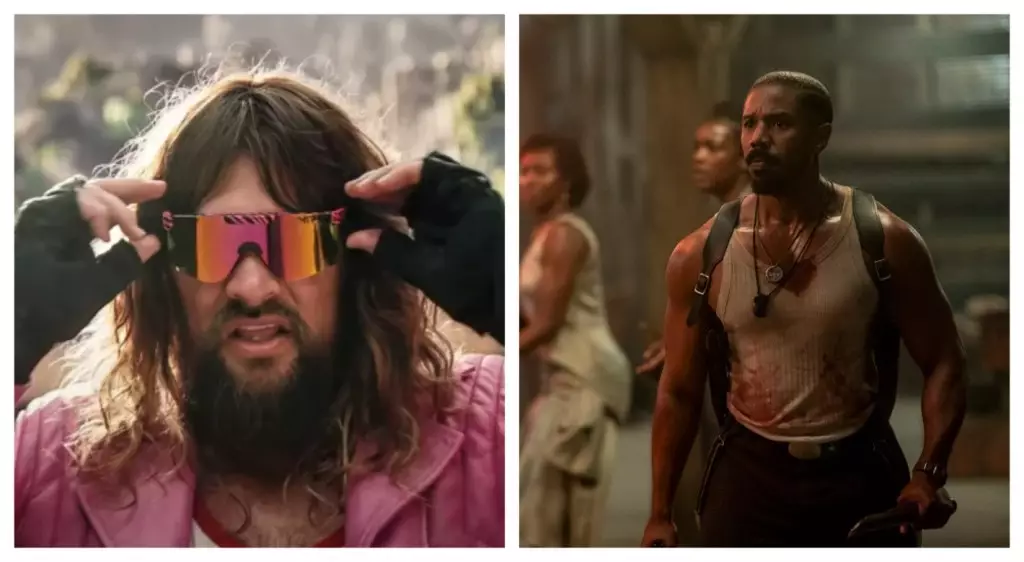Hollywood has recently made headlines, not just for its successes but for a notable resurgence in what seemed like an industry on the verge of collapse. Two films, the highly anticipated *Minecraft Movie* and the gripping thriller *Sinners*, have found immense appeal among Gen Z, rekindling hope for a future filled with original storytelling. In a landscape marred by the pandemic’s aftermath and looming strikes, studios now find themselves basking in the glow of newfound popularity. This is a far cry from just a couple of years ago when studios were canceling releases left and right, and streaming platforms seemed to be the only safe haven for cinematic content.
When the dust started to settle from the chaos of 2022, a strange phenomenon unfolded on social media: the convergence of the releases of *Oppenheimer* and *Barbie*, jokingly dubbed “Barbenheimer.” This clever marketing turned the tide, demonstrating the power of innovative concepts and strategic planning. With the release of *Coyote vs. Acme*, which attempted to counterprogram *Barbie*, even the best-laid plans didn’t stand a chance against the viral marketing brilliance of the double feature. The extravagant yet playful promotional strategies showcase how crucial timely execution is in today’s filmmaking world.
The Financial Dilemma of Originality
Despite the overwhelming success of *Minecraft* and *Sinners*, it compels audiences and industry insiders alike to ponder significant questions about financial overreach within Hollywood. At a staggering budget of $150 million, many wonder whether *Minecraft*’s hefty price tag is justified, given its status as a video game adaptation. Conversely, *Sinners*, with a budget of $90 million, represents an even riskier investment as an original concept. Traditionally, original films have faced skepticism in Tinseltown, which has been home to blockbuster franchises and tentpole films for decades.
The skepticism surrounding original films isn’t unfounded. Recent titles like *The Amateur*, *Drop*, and *The Alto Knights* have floundered at the box office. Audiences have become conditioned to expect sequels and adaptations of beloved properties, and original ideas have suffered from this trend. The conservative nature of major studios raises serious concerns about their willingness to embrace creativity, leading to a reliance on proven franchises instead of new narratives. One might wonder, however, if the rise of disruptive companies like Apple and Amazon, which possess fewer franchises, could serve as a catalyst for a new age of originality.
Redefining Originality in the Industry
It’s important to recognize that some of the most iconic films in history were originally devised, highlighting a significant dichotomy in today’s cinematic landscape. Directors and creators like Paul Thomas Anderson, known for his original works, are stepping into the spotlight with anticipation around his upcoming project. This raises a compelling argument: originality should not only be celebrated but also incentivized in a market that increasingly appears to favor familiarity over innovation. The simplest yet most profound truths in cinema echo through time—great films often originate from personal experiences and unique narratives rather than recycled plots.
The resounding success of original films like *Sinners* can mark a paradigm shift if embraced by the industry. Many classic films, such as *Casablanca*, *The Godfather*, and even *It’s a Wonderful Life*, were products of passion that defied their circumstances. Each of these classics faced initial resistance but ultimately paved the way toward cinematic greatness. The ability for storytellers to channel personal struggles and experiences into their narratives can yield works that resonate deeply with audiences, establishing connections beyond mere entertainment.
Looking Forward: What Lies Ahead for Hollywood?
That being said, the question remains: Can Hollywood continue to build momentum off of these recent successes? The answer lies in the industry’s willingness to embrace originality without fear of financial repercussions. With the summer ahead bringing promising titles, new stories are likely struggling to emerge from the shadows of previous successes. The industry stands at a crossroads; choosing to invest in creativity could result in a rich tapestry of narrative experiences that elevate the art of filmmaking.
In the face of now-commonplace cynicism and skepticism toward original movies, Hollywood could redefine its narrative through timely marketing strategies and the bravery to craft authentic stories. Embracing originality is far more than a bet; it’s a warranted challenge that might yield incredible stories reflective of diverse human experiences. The narrative fabric of cinema is changing, and thriving as a splash of color in a black-and-white world playfully invites the question: how many more stories are waiting to be told?

